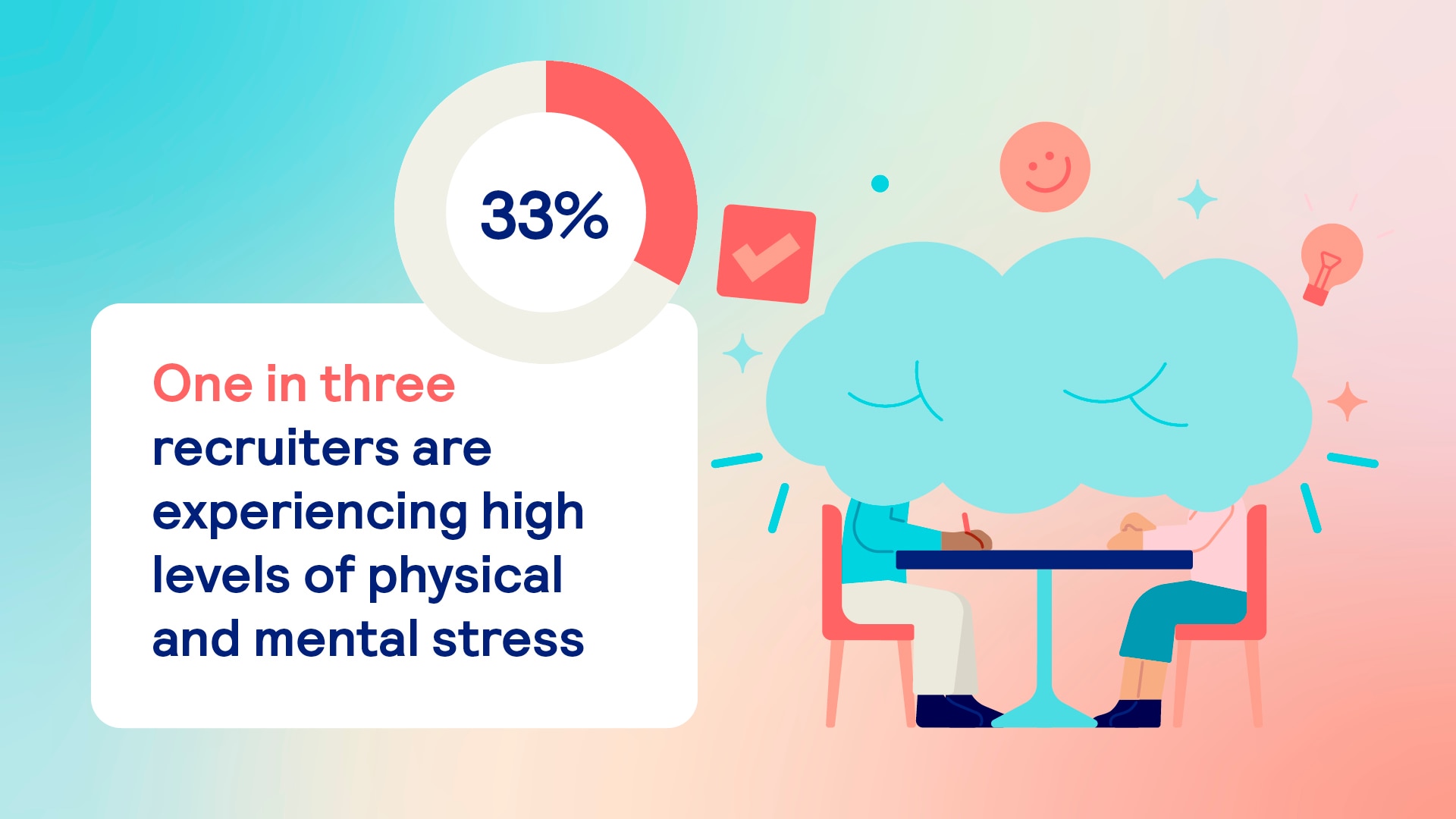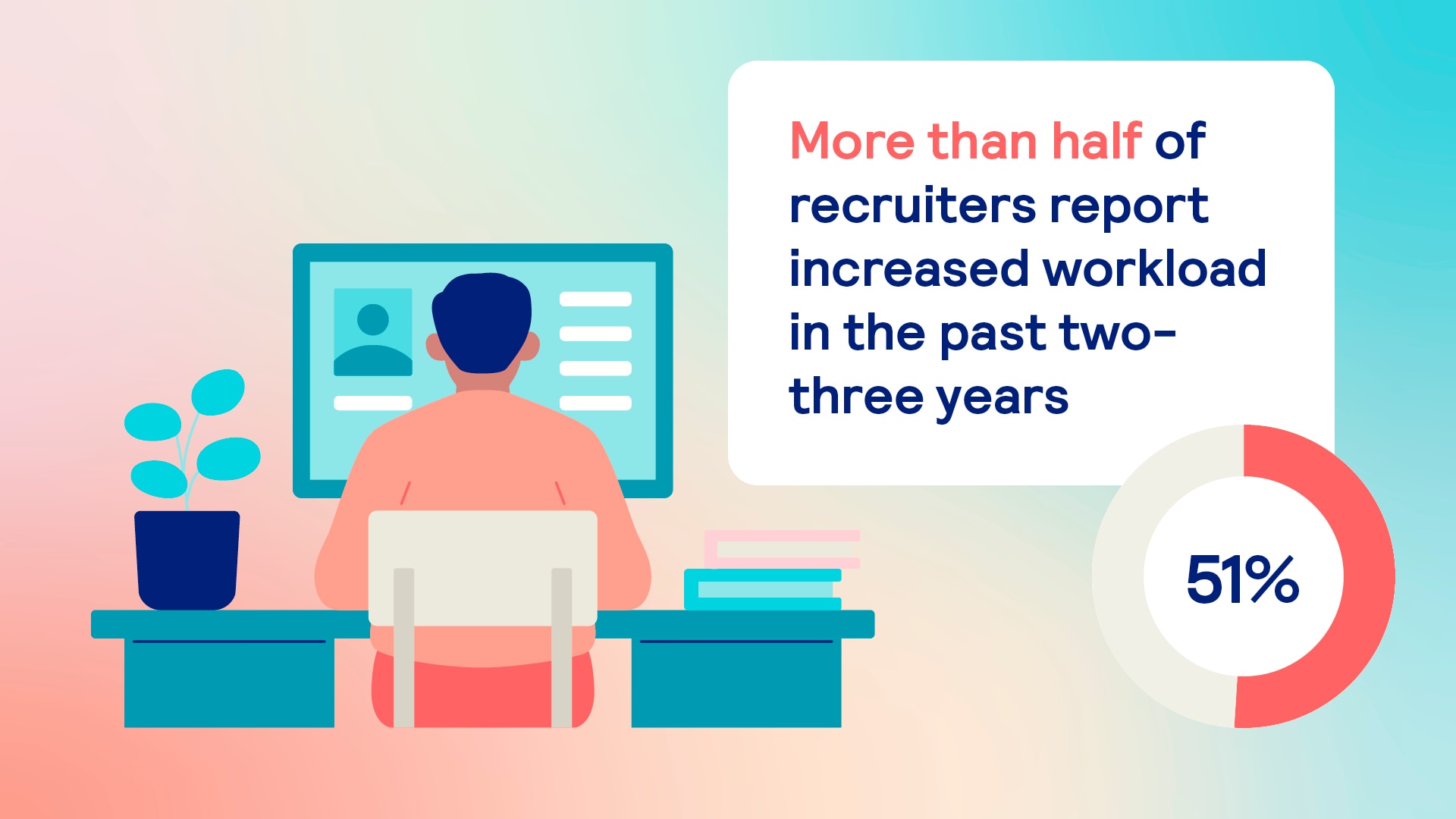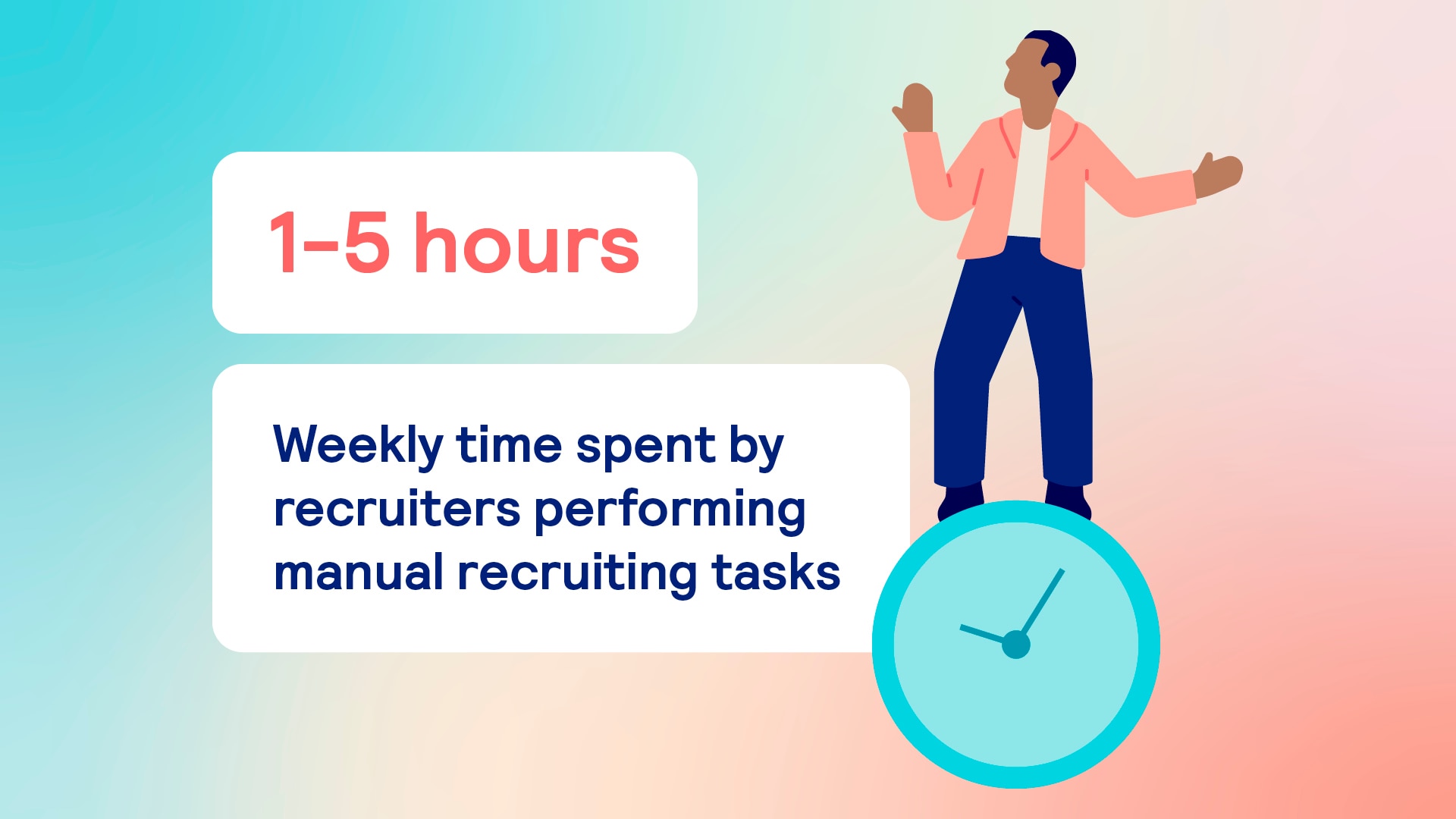IrishJobs has published new research that reveals Ireland’s competitive hiring market is putting recruiters at risk of burnout. Findings show that 1 in 3 (33%) recruiters describe themselves as heavily, or very heavily, physically, and mentally stressed due to their workload.
The IrishJobs Recruiter Snapshot survey polled recruitment decision-makers in 250 businesses across Ireland. With the labour market close to full employment, more than half (51%) of recruiters report that their workload has increased over the past two to three years as they navigate a highly competitive market for talent.
An increase in the amount of time needed to fill job vacancies is creating additional complexities in recruitment. 57% of recruiters report that the average duration for filling a job has increased in the past 2 to 3 years as they face skills shortages and increased competition to attract the best people. The impact of slower hiring is greatest among large companies, where 725 of firms have seen the average time taken to fill positions rise.
Findings indicate that these increased pressures are having a direct impact on well-being across the recruitment industry. 33% of recruiters are experiencing high levels of physical and mental stress in their role – a concerning sign that burnout is on the rise across the sector. Stress levels are highest among large enterprises, where 41% of recruiters report feeling heavily, or very heavily, stressed.

Automating manual recruitment
Recruiters reveal they spend an average of 5.96 hours every week performing manual and administrative tasks. Recruiters in large companies spent the greatest amount of time doing manual tasks, spending an average of 11.78 hours every week on administrative tasks. More than half (56%) of recruiters spend between 1 to 5 hours weekly doing manual recruiting tasks.
These findings come as IrishJobs research as IrishJobs research published earlier this year showed the growing impact of AI tools and technologies in automating recruitment. Recruiters using AI reported that reducing the time spent on manual and repetitive tasks was a key benefits of the technology, with sending candidates reminders (42%), tracking application status (42%), and scheduling job interviews (39%) some of the most common ways in which the technology is being used to automate the recruitment process.

Growing AI adoption
The IrishJobs Recruiter Snapshot survey shines a light on the positive potential of AI to support recruiters and alleviate some administrative burdens. More than 1 in 4 (28%) employers in Ireland have already introduced AI to their recruitment processes, according to our research.
Adoption is likely to further accelerate as more companies adopt clear guidelines on its usage and provide AI skilling initiatives to their workforce. Less than 1 in 4 firms (24%) have already established an organisation-wide AI policy, indicating the potential adoption of the technology to rapidly rise as more concrete workplace guidelines are established.

Commenting on the research findings, Sam Dooley, Country Director of The Stepstone Group Ireland with responsibility for IrishJobs, said:
“With unemployment set to remain close to historic lows and businesses across Ireland navigating an exceptionally tight labour market, the IrishJobs recruiter snapshot survey provides a timely insight into the challenges facing recruiters as they compete for talent. While it is widely recognised that job hunting can be a stressful experience for candidates, it’s important to acknowledge that the process can also be pressurised for recruiters.
Findings show that many recruiters are struggling with increased hiring demands and workloads as a result of this competitive market for talent. These pressures are having a significant impact on well-being and productivity across the recruitment landscape in Ireland. 1 in 3 recruiters report chronic levels of stress, which puts them at serious risk of burnout.
It is important that employers create an environment where the well-being of staff is prioritised and regularly check in with recruitment teams to ensure they have sufficient support. With skills shortages unlikely to abate in the near term, putting an increased focus on upskilling and reskilling initiatives can help businesses meet their talent needs and reduce pressure on hiring teams.
Our findings also revealed that significant amount of time spent by recruiters on manual and time-intensive tasks. While we’re still at an early stage in the life cycle of AI, AI tools and technologies have an important role to play in automating manual recruitment tasks and enhancing productivity in the industry. As more organisations develop clear guidelines around the use of AI in the workplace, we expect to see adoption of these tools in recruitment rapidly accelerate.”
